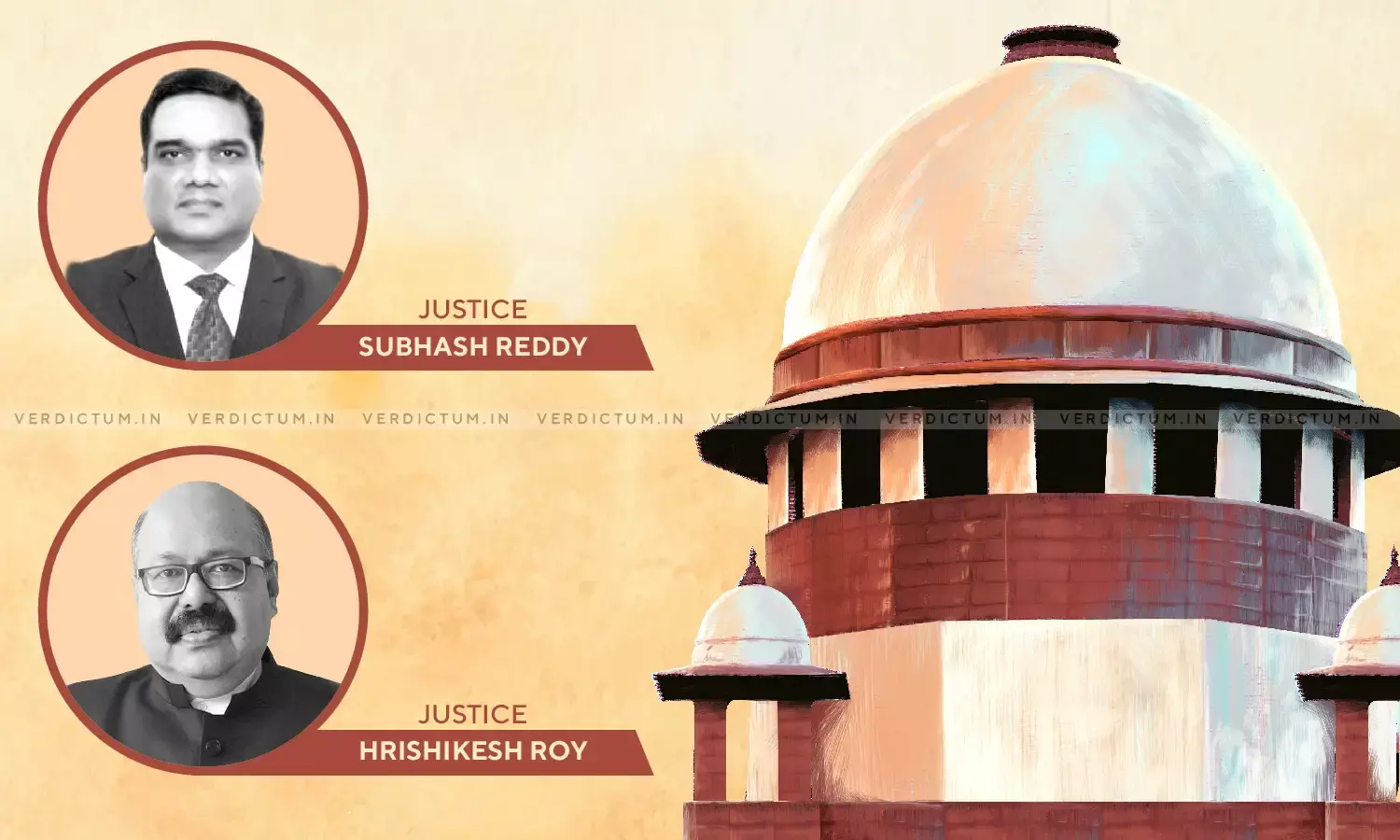Inquiry Before Disciplinary Action Can't Be Dispensed With Under Rule 161 Of RPF Rules Without Recording Reasons– Supreme Court

A two-judge Bench of Justice R. Subhash Reddy and Justice Hrishikesh Roy has held that Rule 161 of Railway Protection Force Rules, 1987 which prescribes dispensing with an inquiry to pass an order against a member of the Force cannot be invoked in a routine and mechanical manner unless there are valid and compelling reasons for the same.
Senior Advocate Ms. Kiran Suri appeared for the Appellants and Senior Advocate Mr. S.R. Singh appeared for the Respondent during the proceedings before the Court.
An appeal was preferred assailing the judgment of the Allahabad High Court which had upheld the order of the Single Judge. The Single Judge had allowed the Writ Petition of the Respondent and set aside the dismissal order with a direction for payment of all pensionary benefits and 50% back wages.
The Single Judge had passed such an order as the Respondent-Employee had attained the age of superannuation.
In this case, the Respondent-Employee was working as a Head Constable in the Railway Protection Force. It was alleged in the disciplinary inquiry initiated against him that he was involved with the main accused in the theft of non-judicial stamp papers worth more than Rs. 1 Crore.
The competent authority had held that a disciplinary inquiry was not required to be held as it was not reasonable and passed an order of dismissal from service against the Respondent.
It was contended by the Appellant before the Supreme Court that Rule 161 of the RPF Rules empowers the authorities to dispense with an inquiry where it is of the view that it is not reasonably practicable to hold an inquiry.
Further, the Appellant argued that even if the order of dismissal does not contain reasons, it is sufficient if the file discloses recording of reasons before passing the order.
Against the grant of back wages, Ms. Suri relied on the precedent Tarsem Singh v. State Of Punjab & Others and pleaded that as the allegations made against the Respondents were serious, no back wages could be granted in his favor.
While the Respondent argued that Rule 161 of RPF Rules requires recording of reasons and an order of dismissal passed without the same cannot stand to legal scrutiny.
Against the Order of Dismissal
The Apex Court held, "It is clear that to pass an order as disciplinary measure, by adopting special procedure in certain cases, Rule 161 itself mandates recording of reasons. The normal rule for conducting an inquiry is governed by Rules 132, 148 and 153 of the RPF Rules."
Further, the Court observed that if the Authorities invoke a special procedure, unless they record reasons, as specified under the Rules, no order could have been passed under Rule 161.
"At no point of time, appellants have produced file to show that any reasons are recorded in such file also. It is a settled legal position that when Rules contemplate method and manner to adopt special procedure, it is mandatory on the part of the authorities to exercise such power by adhering to the Rule strictly," the Bench opined.
The Court held that the dismissal of a regular member of Force was a drastic measure.
"The dismissal order dated 22.10.1998 does not indicate any reason for dispensing with inquiry except stating that the respondent had colluded with the other Head Constable for theft of Non Judicial Stamp Papers," the Court asserted.
Further, the Bench held, "The argument of learned Senior Counsel for the appellants that if file contains reasons, same is sufficient to maintain the order, deserves rejection."
"The very fact that they have conducted confidential inquiry, falsifies the stand of the appellants that it was not reasonably practicable to hold an inquiry," the Court added.
Additionally, the Court noted, "In the present case, there appears no valid reason to dispense with inquiry and to invoke Rule 161 of the Rules. We are in agreement with the view taken by the High Court."
Plea of Appellants against grant back wages
The Apex Court relied on the case of Tarsem Singh v. State of Punjab &Ors., where it was held that payment of back wages would depend on the result of the inquiry.
Further, the Court held, "In normal course, we would have permitted to hold inquiry, but keeping in mind that the respondent had retired from service even before the judgment was rendered by the learned Single Judge, we are not inclined to do so at this stage."
While making a reference to Deepali Gundu Surwase v. Kranti Junior Adhyapak Mahavidyalaya (D.Ed.) & Others., the Court noted, "In the case of wrongful termination of service, reinstatement with continuity of service and back-wages is normal rule and the adjudicating authority to take into consideration the length of service of the employee, nature of misconduct, financial condition of the employer and similar other factors."
"It is clearly well settled that any amount of suspicion cannot be equated to proof," the Bench opined.
The Court held that the grant of 50% back wages was just and fair in the facts and circumstances of the case. While agreeing with the High Court, the Court held that it was correct to grant 50% back wages to the Respondent.
In the light of these observations, the Court upheld the impugned order of the High Court and dismissed the appeal.
Click here to read/download the Judgment

